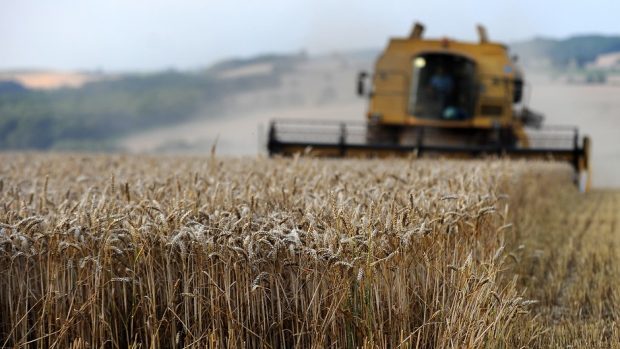Yields from this year’s cereal harvest are 5% lower than expected dashing hopes 2015 would be a record-breaker.
In October the Scottish Government released its first estimate of harvest figures suggesting the 2015 Scottish cereal crop would be the biggest in 20 years, weighing in at 3.25million tonnes.
However, final estimates show that although a record wheat harvest was recorded, the overall yields of other cereals and oilseed rape are 5% lower than expected and little changed on last year.
Total cereal production for harvest 2015 is now estimated at 3.1million tonnes.
According to government, this reduction was impacted by a 4% reduction in the cereals area planted as a result of rules under the new Common Agricultural Policy.
“The 2015 harvest was late to start and, once under way, was halted several times by poor weather conditions, with more fields whole-cropped than usual, which is likely to have impacted on yield estimates,” said a government statement.
“Long periods of wet weather prevent farmers from harvesting cereal grain, and often they will instead cut the whole of the plant and use it as animal feed. When this happens yields cannot be measured.”
The average overall yield for Scots cereals is now estimated at 2.83 tonnes an acre, with spring barley yields of 2.39 tonnes an acre, wheat yields of 3.76 tonnes an acre and oilseed rape yields of 1.66 tonnes an acre.
This compares to initial estimates of overall cereal yields of 2.95 tonnes per acre, ranging from 2.5 tonnes for spring barley to 3.92 tonnes for wheat. Oilseed rape yields were originally expected to average around 1.69 tonnes per acre.
Government said: “Scotland’s largest cereal crop, spring barley, saw a 9% fall in production over the year, to 1.5million tonnes. There was also reduced production for oats, which fell to 152,000 tonnes. Compared to last year, wheat, winter barley and oilseed rape production has increased.”
Total wheat production is set to be the highest on record at 1million tonnes, with winter barley production estimated at 406,000 tonnes and oilseed rape at 148,000 tonnes.
